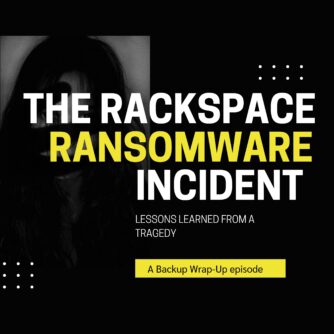It started as one episode to discuss the Coronavirus and how it affects your data and how it is protected. Six episodes later, we’ve actually done quite a bit of coverage of this new virus. Now that we’ve resumed our normal topics of data protection and disaster recovery, I thought I’d summarize our coronavirus coverage.
First, we did a couple of episodes where we attempted to summarize what we were hearing in the media:
Coronavirus and your data – (Restore it All Podcast #37)
Coronavirus concerns Part 2 (Restore it All Podcast #38)
Then we interviewed our Italian friend, Enrico Signoretti (@esignoretti), about how it was living in quarantine.
A View from Italy & its Coronavirus Quarantine (Restore it All Podcast #39)
Finally, we had a three-part interview with Lindsey Shultz, MD/MPH (Doctor of Medicine & Masters in Public Health). This series was incredibly informative, and I’d put it up against any of the interviews you’ll see on the major news channels.
Finally, we interviewed Christopher Kusek (@cxi) about how the CDC is finally recommending masks for all, and how he always felt we should have always been doing that.
Why everyone should be wearing masks right now! (Restore it All Podcast Episode #43)
I hope these episodes have been helpful. For now, we’re going back to our normal programming of discussing data protection, disaster recovery, and the like. Thanks for listening!
Written by W. Curtis Preston (@wcpreston), four-time O'Reilly author, and host of The Backup Wrap-up podcast. I am now the Technology Evangelist at Sullivan Strickler, which helps companies manage their legacy data






